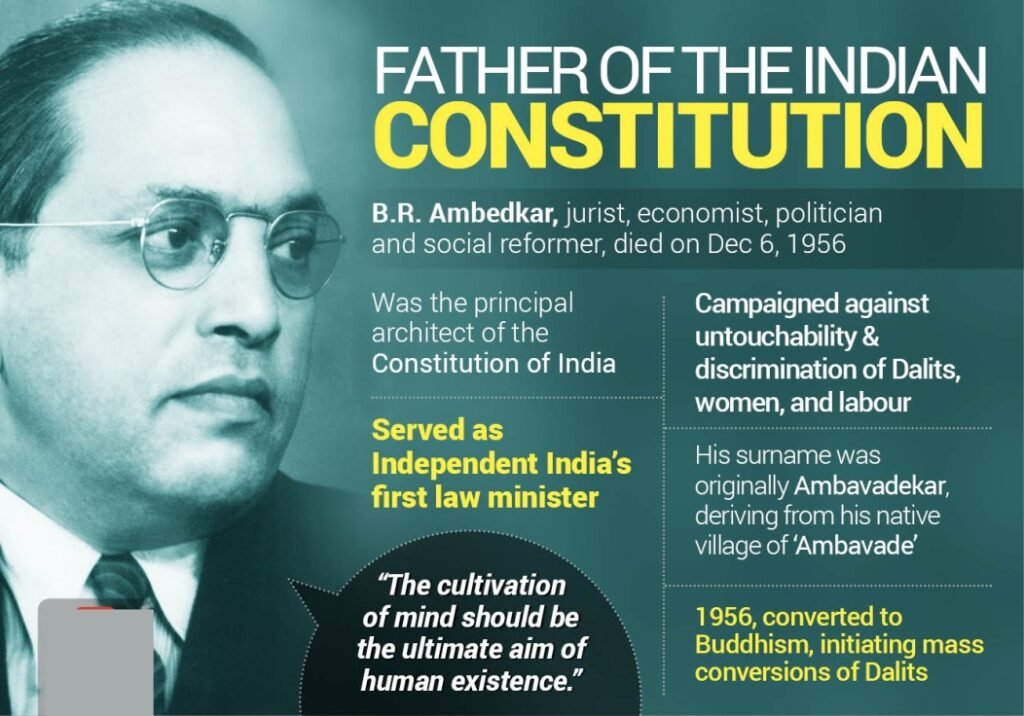Dr. B.R. Ambedkar: Remembering the Crusader of Social Justice

Nation pays homage to the Architect of the Indian Constitution, Bharat Ratna, Baba Saheb Dr B.R (Bhimrao Ambedkar) on on his 64th Mahaparinirvan Diwas.He died on December 6, 1956. The day is observed as Mahaparinirvan Diwas.
LEARNING FROM HOME/ WITHOUT CLASSES/ BASICS
Dr. B.R. Ambedkar
was a scholar, a social reformer and a leader who dedicated his life to eradicating social inequality in India. In 1990, Ambedkar posthumously conferred with Bharat Ratna, India’s highest civilian award.
“Baba Saheb” Ambedkar, worked on social discrimination against untouchables. And also supported the rights of women and labourers, revered as a Dalit icon in India. He was the force behind the Dalit Buddhist Movement in India.
By 1927, he decided to launch active movements against untouchability. And espousing access to public drinking water resources and the right to enter Hindu temples. He led a satyagraha in Mahad to fight for the right of the untouchable community to draw water from the main water tank of the town.
Widely known as the Poona Pact in which Gandhi ji ended his fast. Babasaheb dropped his demand for a separate electorate. Instead, a certain number of seats reserved specifically for the ‘Depressed Class’.
In 1936, Babasaheb Ambedkar founded the Independent Labour Party. Babasaheb renamed his party as the Scheduled Castes Federation which later evolved into the Republican Party of India.
India became an Independent nation on 15 August, 1947. Babasaheb Ambedkar appointed as the Union Law Minister and Chairman of the Constitution Drafting Committee. The Committee given the responsibility to write India’s new Constitution.
Babasaheb Ambedkar’s text provided constitutional guarantees and protections for a wide range of civil liberties for individual citizens. Including freedom of religion, the abolition of untouchability and the outlawing of all forms of discrimination. Granville Austin described the Indian Constitution as ‘first and foremost a social document’. The Constituent Assembly formally approved the draft Constitution on 26 November 1949. And Babasaheb’s greatest work, the Indian Constitution, became our way of life on 26 January 1950. After Independence, he appointed as the law minister of India.
He argued for equality. Also won wide support for introducing a system of reservations of jobs for members of scheduled castes and scheduled tribes in the civil services, schools and colleges. This aimed to provide a voice to people who had suffered grave injustices through centuries.
Publications: Essays on Untouchables and Untouchability, The Annihilation of Caste, Waiting for a Visa, The Buddha and His Dhamma







0 Comments